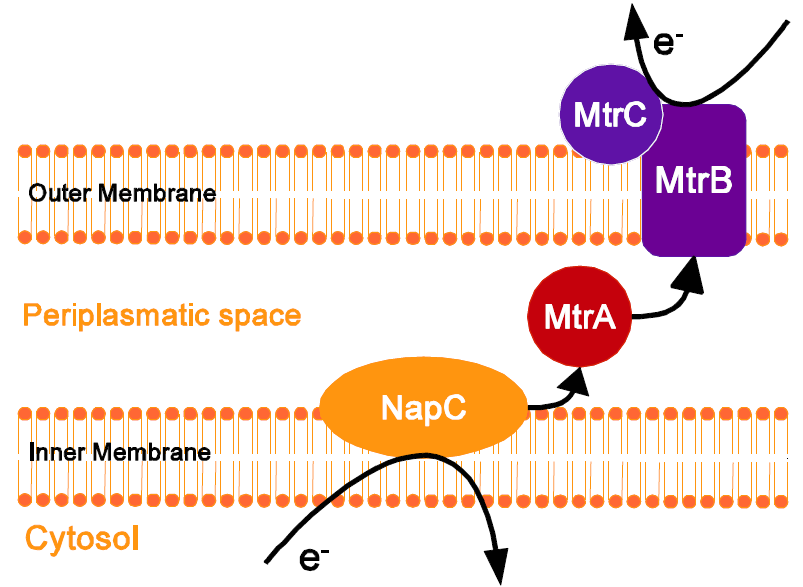Team:Bielefeld-Germany/Project/Cytochromes
From 2013.igem.org
(Difference between revisions)
m |
m |
||
| Line 15: | Line 15: | ||
membrane in a way that it can transfer the electrons without causing its collapse. The integration of cytochromes into the | membrane in a way that it can transfer the electrons without causing its collapse. The integration of cytochromes into the | ||
membrane can help achieving a defined electron transport. A minimal set of cytochromes, consisting of the periplasmatic cytochrome MtrA, the outer membrane cytochrome MtrC and the outer membrane ß-barrel protein MtrB from ''Shewanella oneidensis'' MR-15 should be expressed in ''E. coli''. | membrane can help achieving a defined electron transport. A minimal set of cytochromes, consisting of the periplasmatic cytochrome MtrA, the outer membrane cytochrome MtrC and the outer membrane ß-barrel protein MtrB from ''Shewanella oneidensis'' MR-15 should be expressed in ''E. coli''. | ||
| + | <br> | ||
| + | |||
| + | |||
| + | [[Image:Bielefeld-germany-project-overview-cytochromes.png|410x350px|center|MFC overview|]] | ||
Revision as of 15:39, 25 July 2013
Cytochromes
Membranes can work as an isolator for the cell to prevent the transfer of charged molecules. So it is necessary to change the
membrane in a way that it can transfer the electrons without causing its collapse. The integration of cytochromes into the
membrane can help achieving a defined electron transport. A minimal set of cytochromes, consisting of the periplasmatic cytochrome MtrA, the outer membrane cytochrome MtrC and the outer membrane ß-barrel protein MtrB from Shewanella oneidensis MR-15 should be expressed in E. coli.
 "
"


